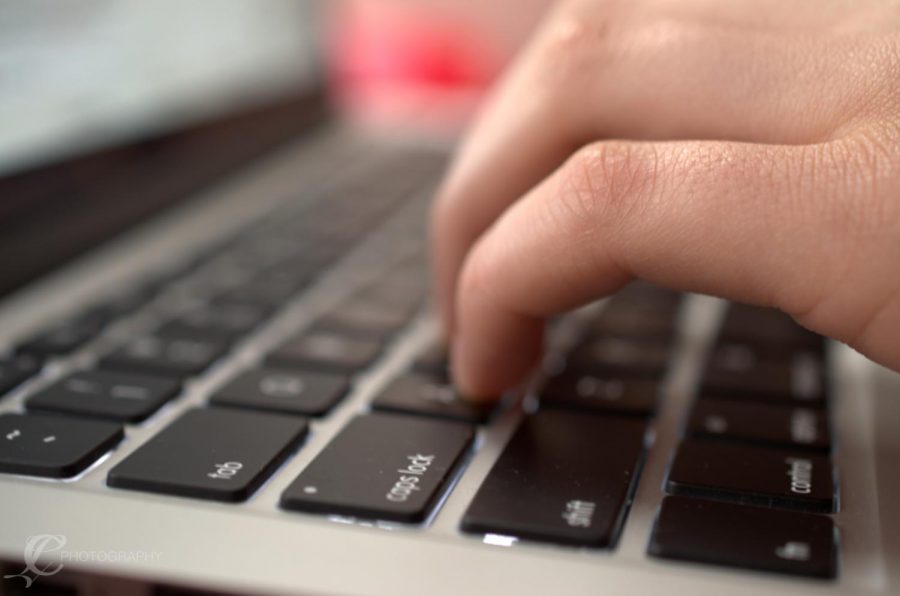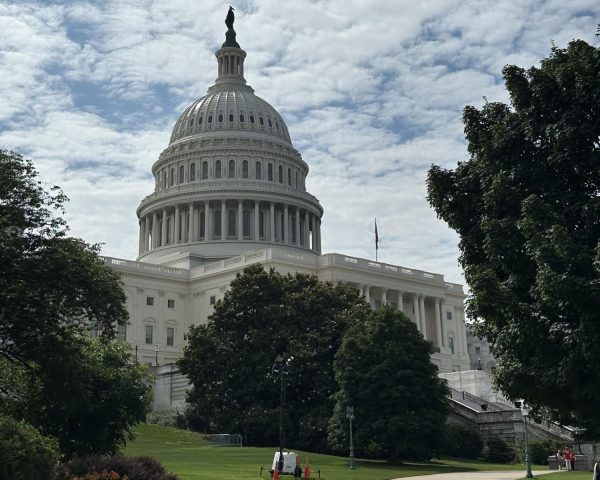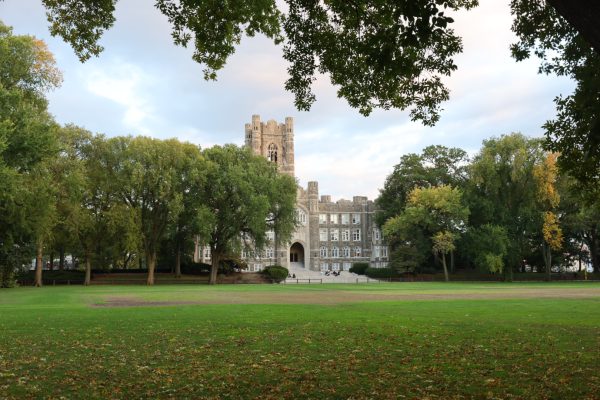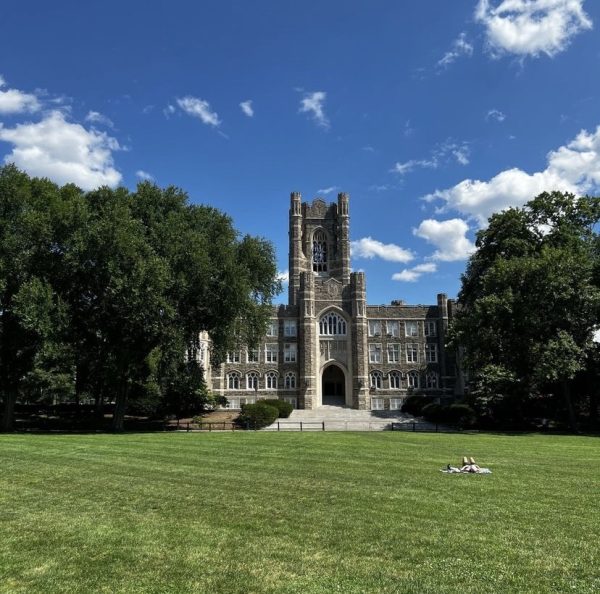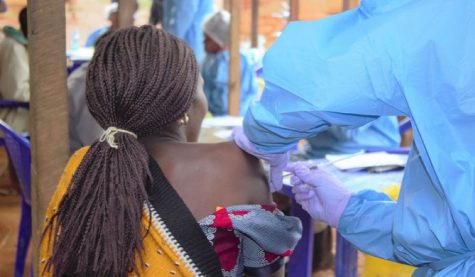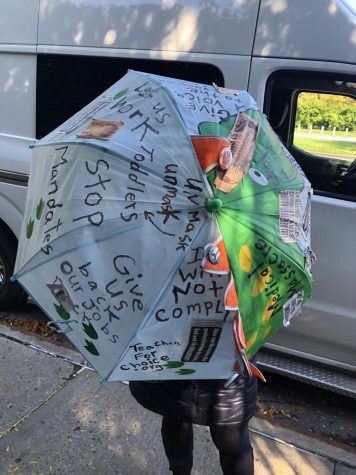Fordham Students and Faculty Reflect on a Year of Online Learning
When the COVID-19 pandemic suddenly shut down businesses and schools across the world, widespread panic ensued. Fordham University switched to online education at the beginning of March, amidst fear and anxiety about the rapidly spreading virus.
Now, over a year into online learning, that feeling of fear and anxiety has subsided for many Americans. However, life at Fordham for students and faculty is still far from ordinary.
Remote learning has brought in a host of new problems that did not exist during in-person education. Issues like “Zoom burnout,” lack of in-person social interaction and isolation-related mental health struggles were not so prevalent before the university moved online.
“I’m used to online school at this point, but it’s still draining and hard,” said Madeline Ryan, FCRH ’24. “It’s hard to sit alone at a desk all day while doing school. I always liked being able to meet and talk with my classmates and teachers in person.”
The difficulties that the COVID-19 pandemic brought to education have been spoken about again and again. However, thinking about online classes from another perspective, have there been any positive aspects to the switch?
Throughout the pandemic, the issue of equity has been a prominent topic, especially when it comes to internet access for online classes. Before the COVID-19 pandemic, issues in differing access to technology appeared, but they did not present the same constant obstacle for lower-income students. Before the pandemic, they could still use school computers with WiFi on campus, attend class in person or rely on handing assignments in on paper. These differences in access were made extremely clear by the COVID-19 pandemic.
“Online learning is just very different [from in-person learning] in any number of ways, [including] the technical challenges of who has access to a laptop at home, who has reliable internet, who has a phone, a camera, a microphone and who is willing to share their personal living space with their entire class,” said Steven D’Agustino, the Director of Online Learning in the Office of the Provost. “There’s so many dimensions of this to think through.”
Equity and equal access in education have always been an issue. However, because of the COVID-19 pandemic, differences in access can no longer be ignored or pushed to the side as they had been during in-person instruction, explained Anne Fernald, special advisor to the provost.
“[At the beginning of the pandemic] I said something about how I liked the fact that when we were in the classroom, everyone was in a t-shirt and jeans,” said Fernald. “I couldn’t tell the difference between my students. I couldn’t tell the rich students from the poor students. Everyone was kind of dressed the same. There was something kind of nice about that. And someone said to me, ‘No, that’s wrong. Assuming that everyone’s at the same level is a disadvantage.’”
When students began to attend Zoom classes from their homes, it allowed professors and instructors to have a small view into students’ personal lives. Fernald recalled watching a student trying to juggle taking care of a disabled sister and other young children while also trying to attend class. This view into home life has helped faculty members understand students’ home situations better, and how it may impact their academic performance, she said.
“I’ve always been aware that I had students who had to work to help their families while they were in class. But I don’t think I understood in a richer way, what that might look like,” said Fernald.
For faculty, conversations about equity and needing to better understand their students’ ability to complete assignments led to broader conversations regarding empathy in general.
“I think I’m hearing a lot more about empathy in general and [faculty] trying to understand the challenges that students face,” said D’Agustino.
Many students also note that they have learned and found positive aspects in online learning.
“With having a lot of online classes, I have been able to find connections outside of my usual scope of people that would be in my classes,” said Anna Ngyuen, FCRH ’24. “I’m a science major. If we had in-person classes, all of my friends would be science majors, but now since we have a lot more freedom, we don’t necessarily need to put them into our groups and classes.”
Additionally, online learning allows students to find new creative ways of communicating with each other, beyond the traditional classroom setting, said Fernald. “[My students] started a discord,” she said. “It’s meant that people who are in California and people who are in Long Island can do stuff together. I think when we’re back [in person], that’ll mean that Rose Hill students and Lincoln Center students, commuter students and residential students will all have some good tools for helping each other to study — tools that are easy to use and feel kind of natural and organic.”
Students have also noted that they have had to increase their time management skills due to the online classroom. “I definitely learned how to manage time because with having a lot of online classes, it’s rough to stare at a screen for long periods of time,” said Ngyuen. “You have to schedule out blocks where you can give yourself a break, and I think that’s really important to bring to a person’s classes too.”
Fordham is planning to resume in-person classes in the fall, a change that many people are eagerly anticipating.
“I think that by losing Fordham in the way that we did, by losing the physical campus and our ability to interact with each other, maybe made us realize how valuable it is,” said D’Agustino. “And I guess when we come back, I hope we can hold on to that. Then we can think about ways that we can take that energy and make some changes that we’ve always wanted to make, but really couldn’t figure out how to do.”
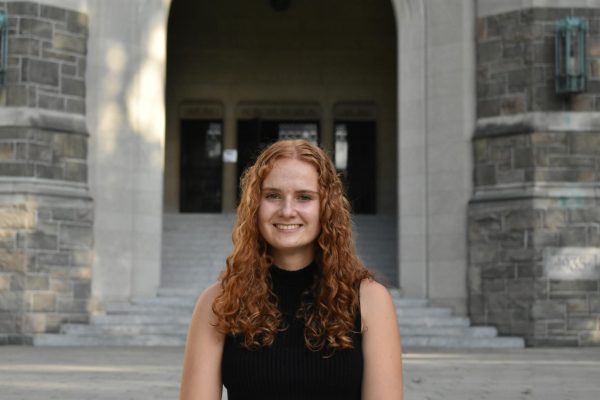
Isabel Danzis is a senior from Bethesda, Md. She is double majoring in journalism and digital technologies and emerging media. The Ram has been a very...



































































































































































































